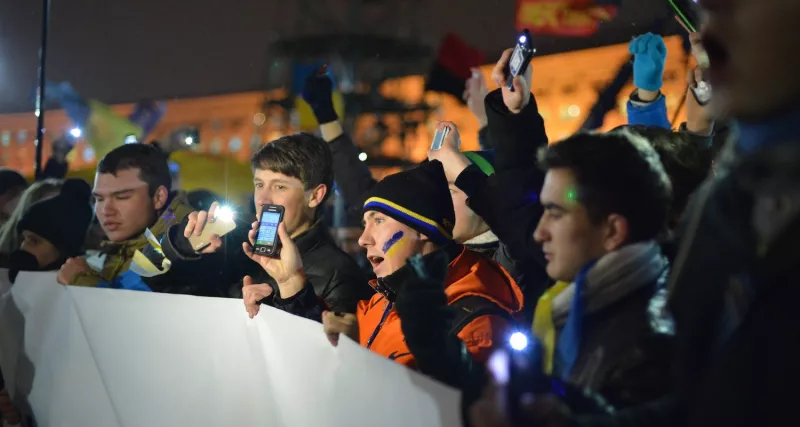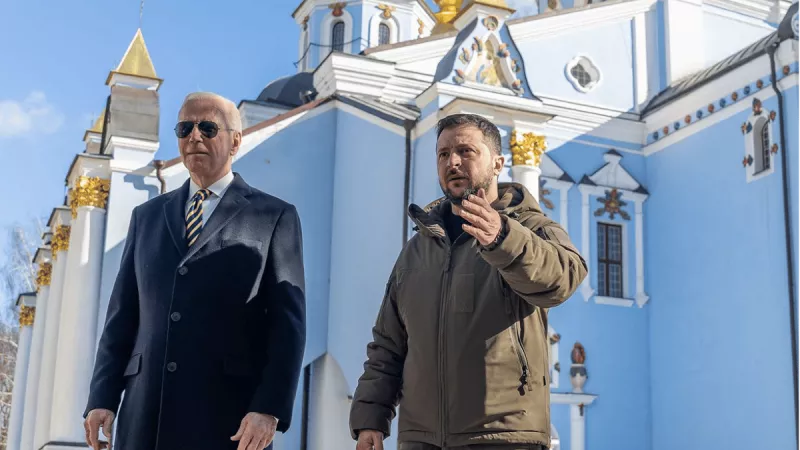Ukraine
Academic Research
-
Journal Article
How Language Shapes Belief in Misinformation: A Study Among Multilinguals in Ukraine
Journal of Experimental Political Science, 2025
Scholarship has identified key determinants of people’s belief in misinformation predominantly from English-language contexts. However, multilingual citizens often consume news media in multiple languages. We study how the language of consumption affects belief in misinformation and true news articles in multilingual environments. We suggest that language may pass on specific cues affecting how bilinguals evaluate information. In a ten-week survey experiment with bilingual adults in Ukraine, we measured if subjects evaluating information in their less-preferred language were less likely to believe it. We find those who prefer Ukrainian are less likely to believe both false and true stories written in Russian by approximately 0.2 standard deviation units. Conversely, those who prefer Russian show increased belief in false stories in Ukrainian, though this effect is less robust. A secondary digital media literacy intervention does not increase discernment as it reduces belief in both true and false stories equally.
-
Journal Article
Quantifying Narrative Similarity Across Languages
Sociological Methods & Research, 2025
How can one understand the spread of ideas across text data? This is a key measurement problem in sociological inquiry, from the study of how interest groups shape media discourse, to the spread of policy across institutions, to the diffusion of organizational structures and institution themselves. To study how ideas and narratives diffuse across text, we must first develop a method to identify whether texts share the same information and narratives, rather than the same broad themes or exact features. We propose a novel approach to measure this quantity of interest, which we call “narrative similarity,” by using large language models to distill texts to their core ideas and then compare the similarity of claims rather than of words, phrases, or sentences. The result is an estimand much closer to narrative similarity than what is possible with past relevant alternatives, including exact text reuse, which returns lexically similar documents; topic modeling, which returns topically similar documents; or an array of alternative approaches. We devise an approach to providing out-of-sample measures of performance (precision, recall, F1) and show that our approach outperforms relevant alternatives by a large margin. We apply our approach to an important case study: The spread of Russian claims about the development of a Ukrainian bioweapons program in U.S. mainstream and fringe news websites. While we focus on news in this application, our approach can be applied more broadly to the study of propaganda, misinformation, diffusion of policy and cultural objects, among other topics.
Reports & Analysis
-
Report
Tweeting the Revolution: Social Media Use and the #Euromaidan protests
To better understand how social media is used in a protest setting, we collect data from the Euromaidan protests in Ukraine and find that social media provides a space to share information, as well as mobilize offline organization.
February 28, 2014
-
Analysis
Tweeting the Revolution: Social Media Use and the #Euromaidan Protests
Our analysis of Twitter and Facebook data suggests that social media continues to be a pivotal organization tool for those in Kiev and also the most relevant mechanism for disseminating and exchanging information both within Ukraine and abroad.
February 21, 2014
News & Commentary
-
News
Studying the 2024 Election — and Beyond
Conducting rigorous research to understand the increasingly fragmented media environment is more important than ever.
November 25, 2024
-
Commentary
Globally, Russia May Actually Not Be Losing the Information War
In the modern digital information era, information wars are always global.
February 24, 2023


